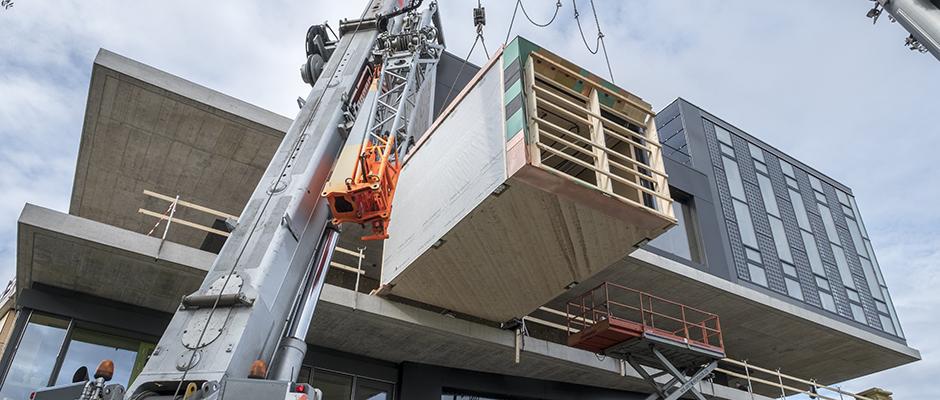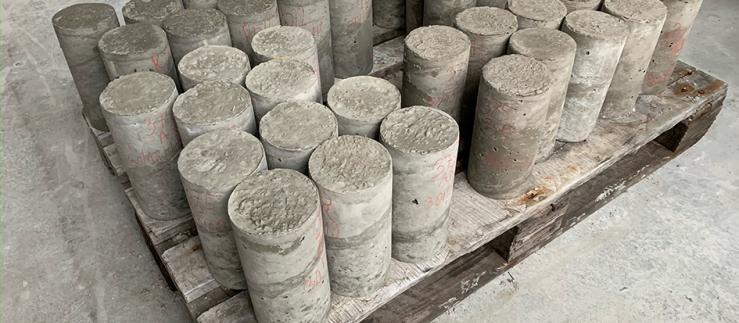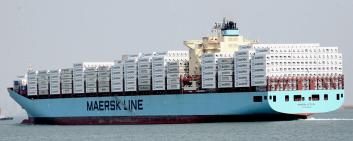Scientists from several international universities are involved in the new NEST unit, contributing their innovative technologies to ensure that all resources used to construct the unit are fully reusable, recyclable or compostable.
For example, the structure as well as large parts of the façade are made of untreated wood. The key here is in the connections: all of them can be easily undone, with adhesive connections omitted in favour of plug and screw connections.
The façade consists of aluminium and copper, both of which can be melted and recycled according to type. The interior of the unit features grown wall panels consisting of mushroom-based mycelium, innovative recycling stones, recycled insulation materials, and borrowed floor coverings.
By using new “material leasing concepts” such as these, the unit “calls into question the existing economic concepts prevalent in the construction industry”, according to a statement.
The official opening of the new NEST unit will take place in early February 2018, at which time the first two tenants will move into the residential unit and commence practical tests on the materials.
NEST, a pilot project for sustainable construction, is the living lab building of the Federal Laboratories for Materials Science and Technology (Empa) and the Aquatic Research Institute (Eawag). New forms of energy and water management, as well as construction materials of the future, are being tested in the modular research units. The goal is to shorten the time to market launch and thus accelerate the innovation process.







